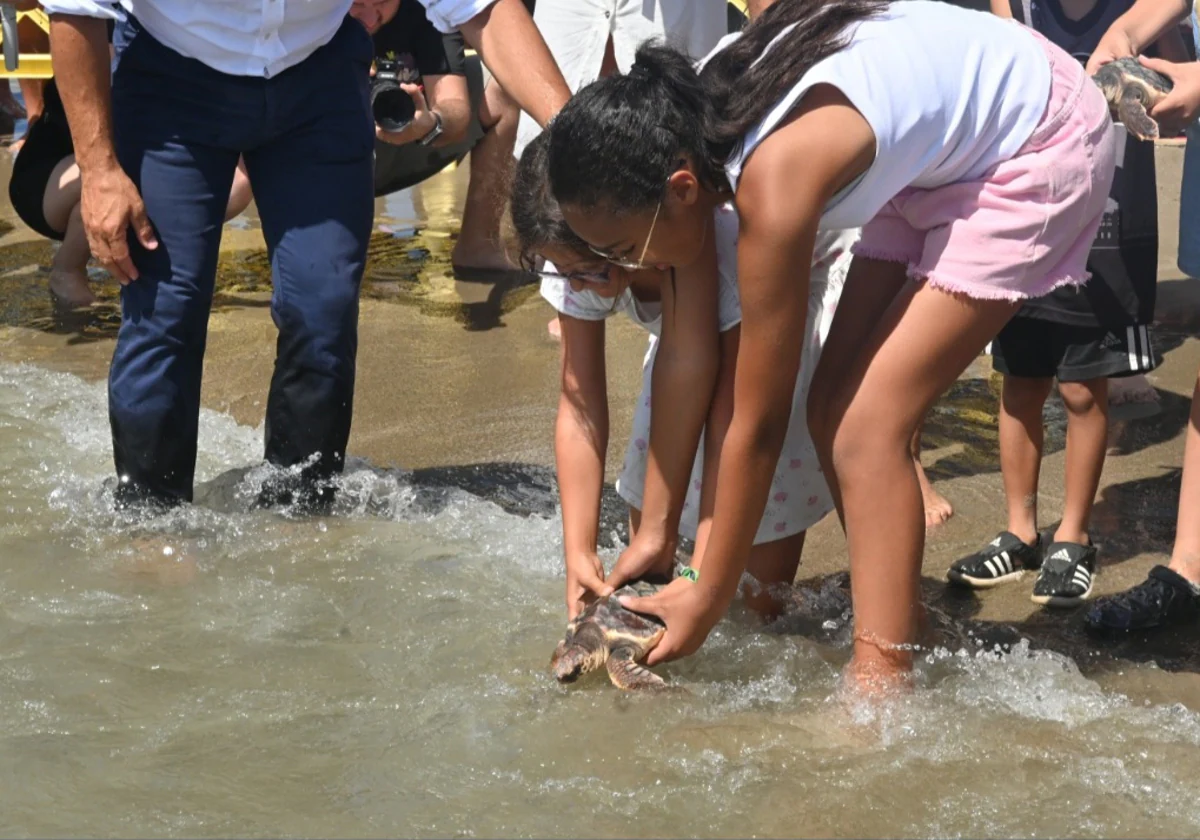Photo special: The 49 loggerhead sea turtles that hatched on a Marbella beach last year are released into the sea
Ten have been fitted with radio-tagging devices for subsequent tracking, monitoring and study
María Albarral
Marbella
Wednesday, 24 July 2024, 16:38
Forty-nine loggerhead sea turtles were released into the sea from Levante beach in Puerto Banús on Tuesday 23 July. The hatchlings were born last year in Marbella. The eggs were laid in July 2023 on El Rodeíto beach where a man walking with his dog spotted the eggs and alerted 112 Andalucía.
From then on, a complete protection plan for this species was put in place and now, 12 months later, the turtles have been released into the sea. Marbella town hall, the Junta de Andalucía and the Produnas association have been responsible for the success of the whole process.
The first ten turtles to be released have been equipped with radio-
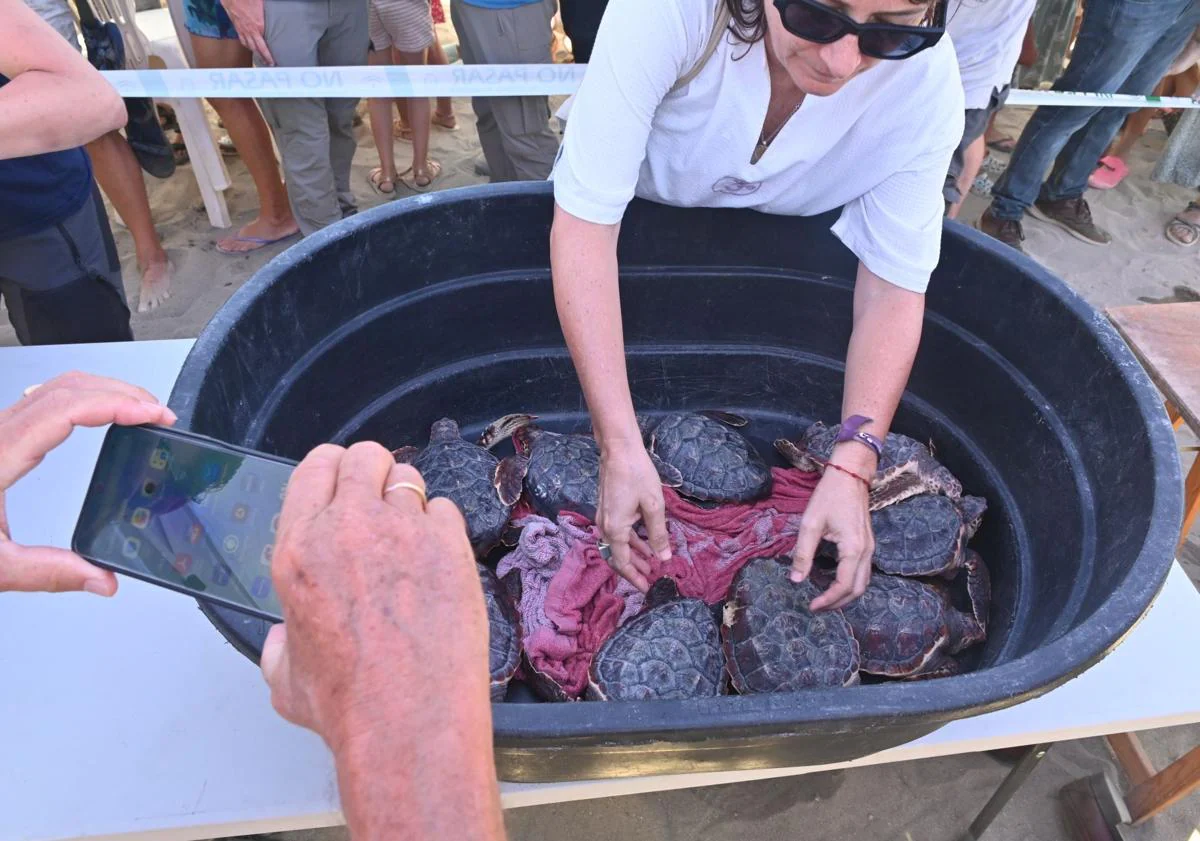
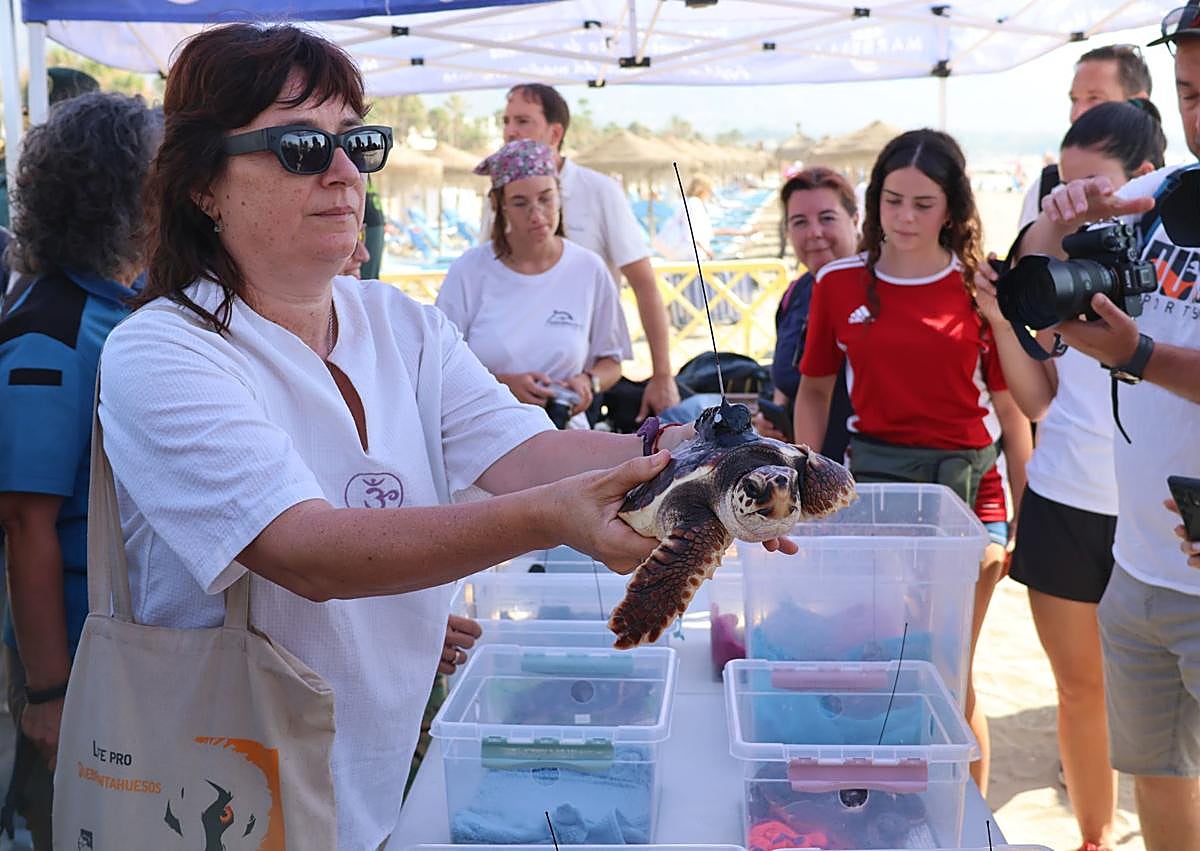
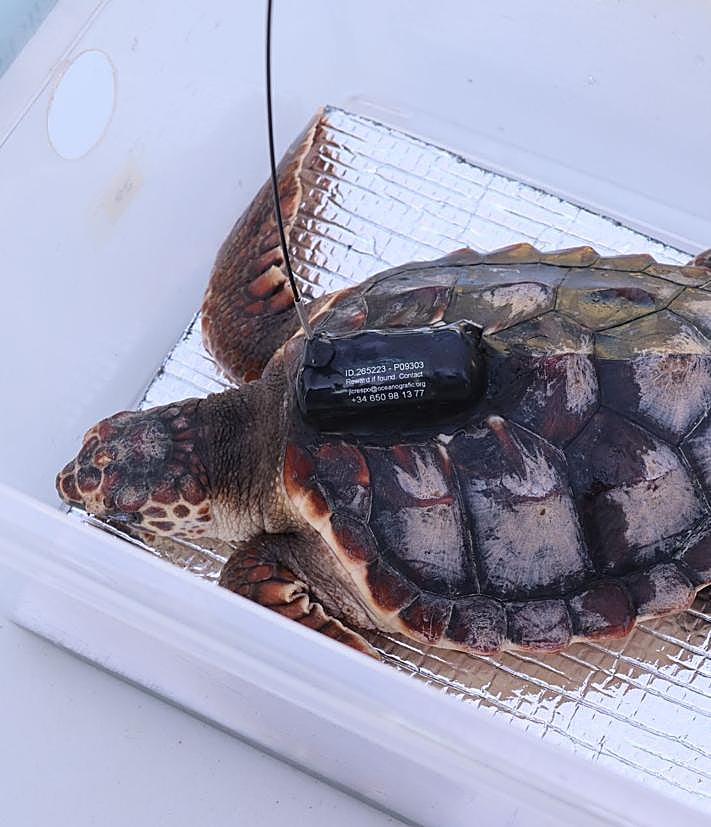
marking devices for subsequent monitoring, followed by the others without such systems. "This is a technical measure that will allow us to monitor and study the movements of these turtles in detail," said the councillor for beaches, Diego López.
Since the eggs were discovered last summer, there has been a continual public awareness campaign of the importance of recovering this type of species. There has been close media attention and volunteers were asked to watch over the eggs before they hatched. The various bodies involved in the programme have appealed to the public to report any such findings.
Of the 69 eggs that were laid by the sea turtle on El Rodeíto beach in Marbella last summer, almost a dozen were transferred to Bioparc Fuengirola for artificial incubation and the rest remained on the coast with the result that almost 50 hatched. Special surveillance of the nest was necessary for 50 days, which was carried out by environmental officers as well as volunteers from the Produnas association, among others.
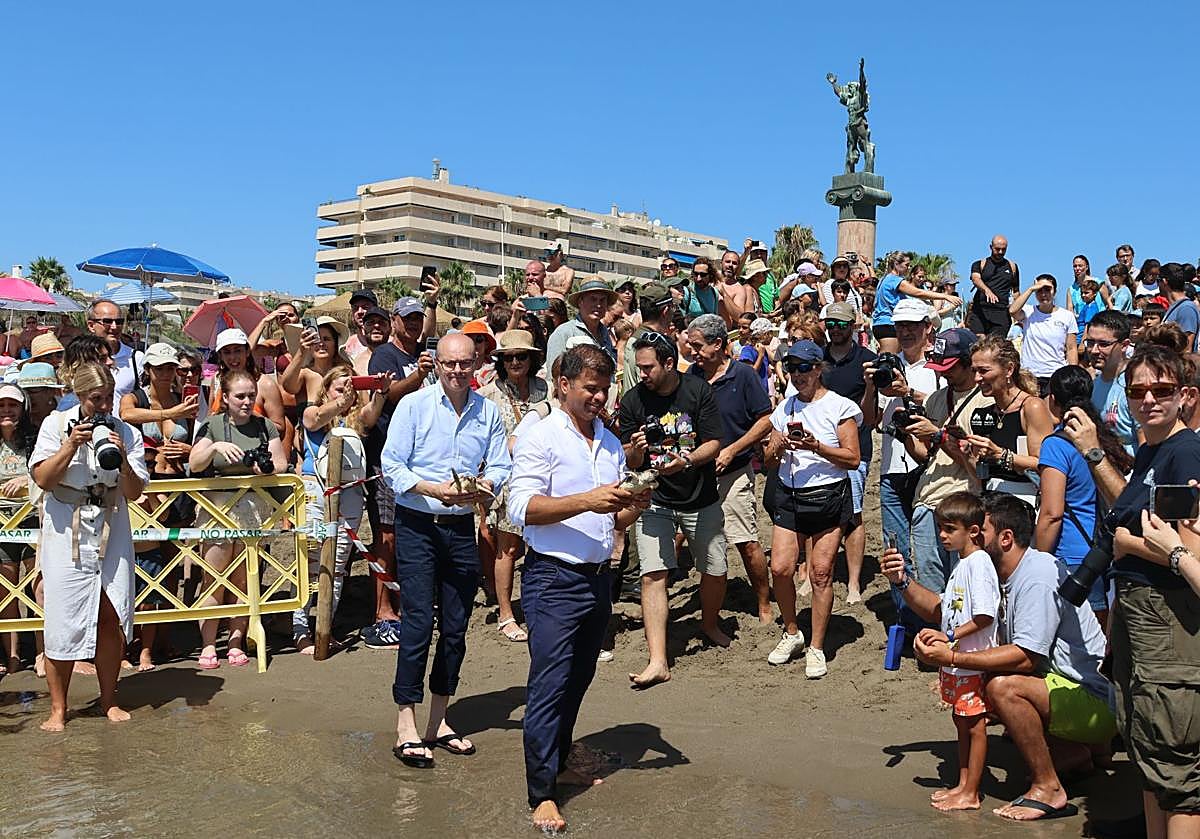
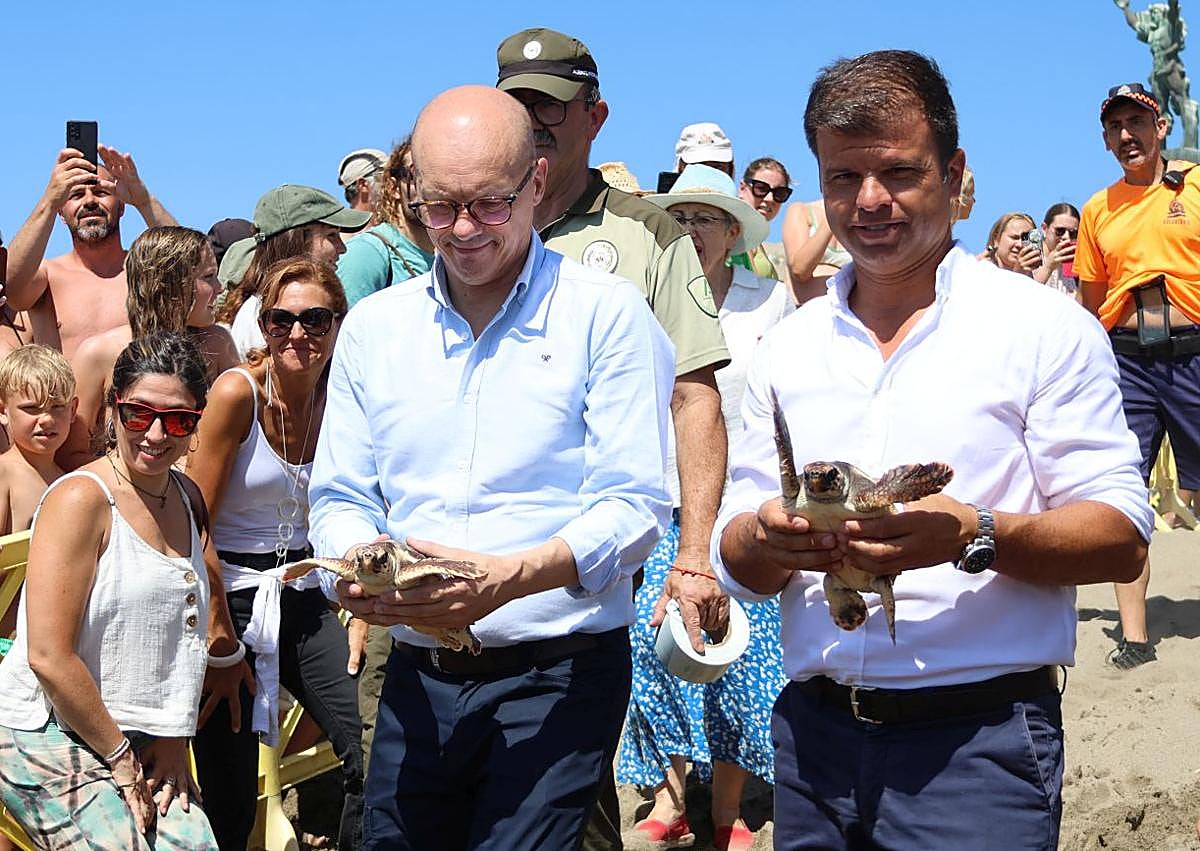
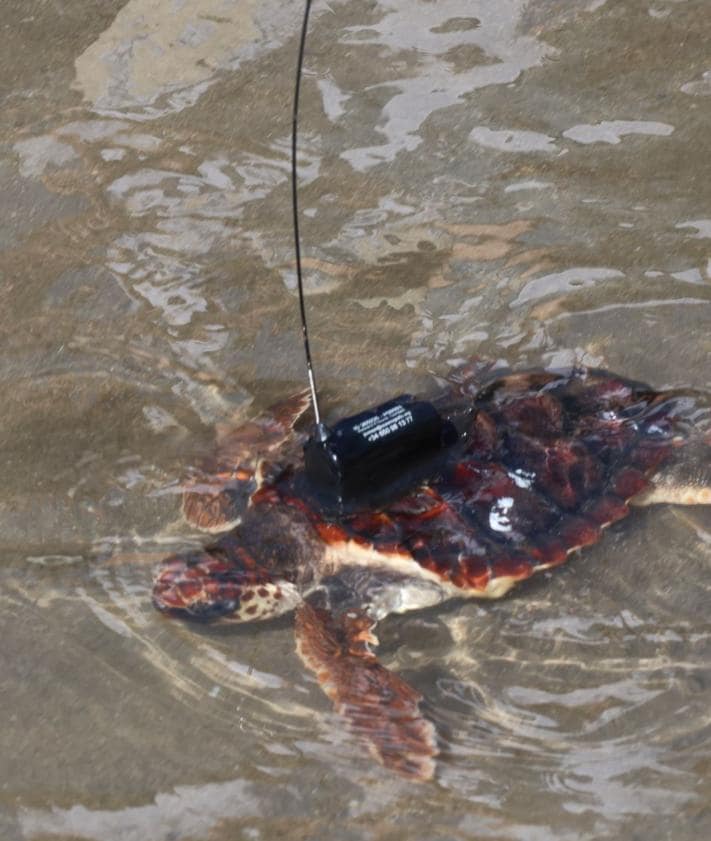
Once the hatchlings were born, the process continued in several facilities, among them, the Centre for Studies and Management of Marine Environment (CEGMA) in Algeciras, where the sea turtles began their growth until they reached one kilogram. It was at this point that they could be released into the sea, in an area adjacent to where they were born.
"This is a great achievement for the life cycle of these species and for preserving our marine biodiversity," said José Antonio Víquez, from the Junta de Andalucía.
'Headstarting'
The turtles have gone through a process called 'headstarting', which involves caring for them during their first year of life until they reach a size that significantly reduces their natural mortality rate. "This effort is aimed at increasing their survival and ensuring that, when they reach adulthood, they return to our coasts to lay their eggs," said Vízzquez.
